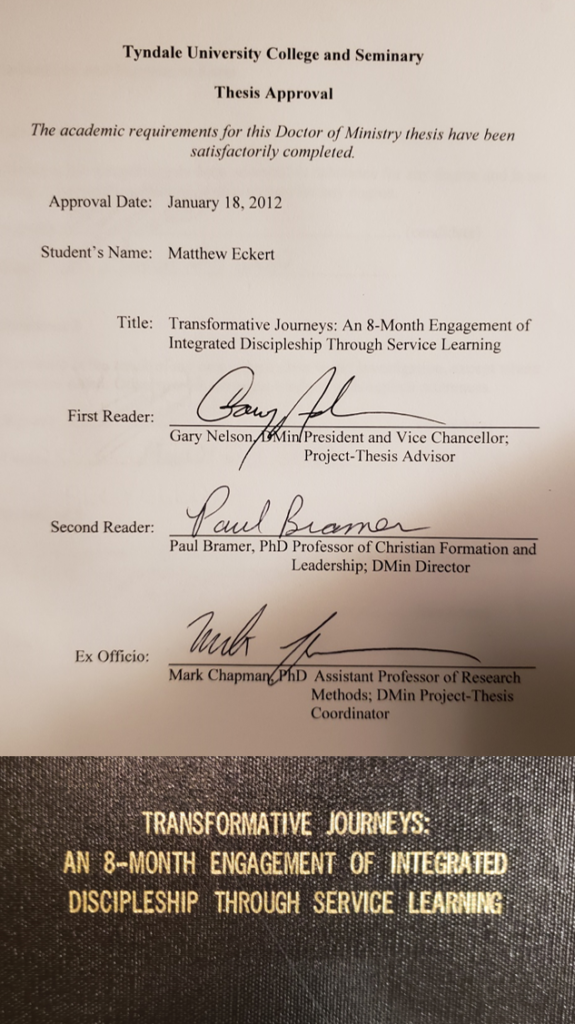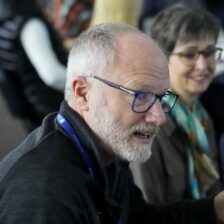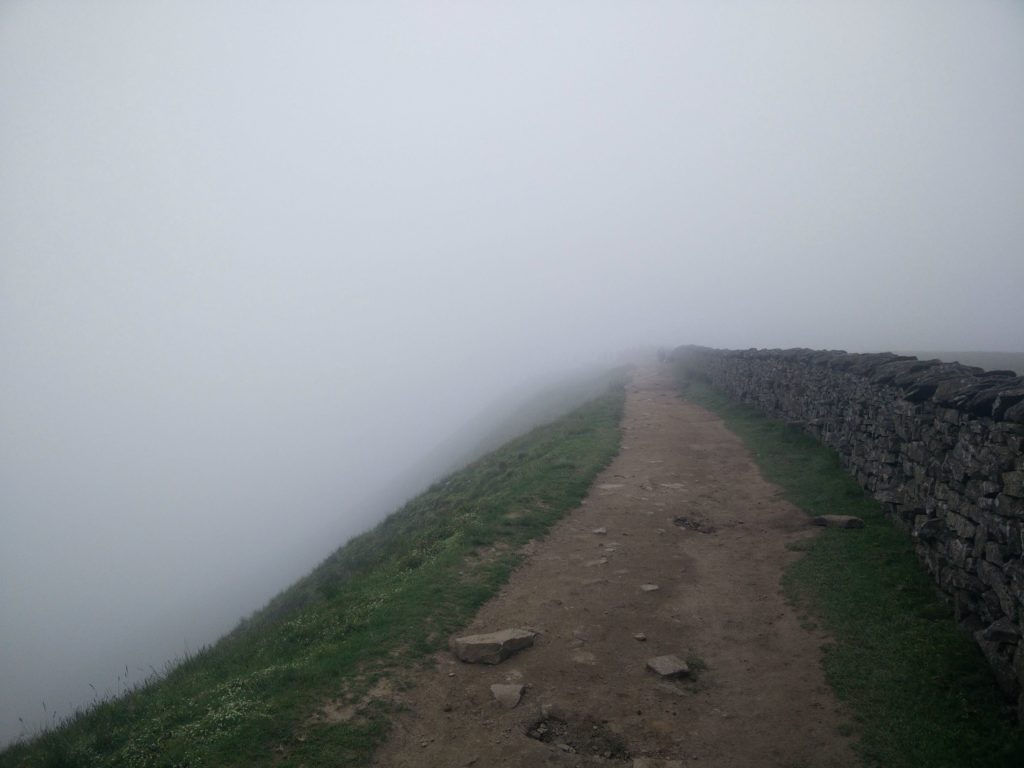 Matthew’s Question to Madison: After reading my doctoral thesis, what intrigued you? What did you learn about me?
Matthew’s Question to Madison: After reading my doctoral thesis, what intrigued you? What did you learn about me?
Often times the living room at home is the incubator for really random conversation and ideas – I sometimes wish I could be a fly on the wall in those conversations (even though I’m part of them). A couple months ago, dad and I were probably bantering about something in the living room, but somehow the conversation turned to his thesis.
“Oh, what did you write your thesis on?”, I curiously asked.
Dad goes on to say the really long title that no one will remember, yet all the words are necessary for grad students who may be interested in his topic.
“Want to read it?”, he asks me.
“You still have it?”, I’m a bit surprised, I admit.
“Of course! It’s bound and everything.”
“What?!” Clearly I know nothing about theses, except that people spend a lot of time researching and writing.
Well of course I’m intrigued, so he goes to his bookshelf and pulls out a black, hardcover book with gold lettering on the front. I immediately open it, and flip through the pages, taking time to explore the table of contents. What did my dad spend countless hours on to produce this book?
So over the next while, I read through my dad’s thesis that he wrote in 2012.
First of all, being able to read through the thesis made me a really proud daughter – even though he wrote it multiple years ago. The tangible object was evidence of something he worked hard on.
Before I even get into the content of his thesis and some of the stand out points for me, what was most amazing for me was the fact that the content of his thesis is something he still talks about today. Most of what I read wasn’t anything new to me simply because he and I have had in depth conversations about it over the years. The pages display his hearts desires and life mission, and to know that what he wrote in 2012 he still believes and lives out today is truly inspiring.
Okay, enough proud daughter talk – I’m sure you’re on the edge of your seat wondering what the topic was! Here’s the title:
Transformative Journeys: An 8-Month Engagement of Integrated Discipleship Through Service Learning
I don’t remember much of dad working this fine piece of literature, but I do remember the project he created to base his writing around. It was called Engaging Journeys. In brief, it was an 8-month program that people applied for that was about biblical service in the city. Participants would choose from a set list of organizations in the city that worked with vulnerable populations, and they would get to serve in some capacity at that location. Beyond the hands on portion, there was a once a month gathering for all participants to share about their experiences, and be discipled in biblical service.
I’ve been reflecting a lot lately on this quote,
“Do practically what you are positionally”
There are so many different positions and postures, and each would impact the practicality of it in different ways. So if one’s position is a follower of Christ, what should their practical actions look like? How should their actions change based on their position?
Each follower of Christ will take different action steps depending on their giftinging, life stage, and other facts. The goal of Engaging Journeys was to spark another avenue of practical application to someone’s faith position. For many, the steps of moving into uncomfortable zones, and being challenged to act on what they say they believe was actually a strengthening of their faith. I’d argue it was because they experienced God in ways they never had previously.
But the weight can’t be all on application – otherwise the position is at risk of sliding in all sorts of directions. I appreciated that during the project, participants came together to reflect, and gain deeper insight into Who they were serving, and why serving in a way that Jesus served was so valuable.
A portion of the thesis was all about the model of Jesus’ discipleship. The main points included 1) pursuing personal interaction, 2) engaging in faith stretching experiences, 3) interacting through questions, 4) acting on mission with practical tasks, 5) having a vision for the future, and 6) knowing the importance of Scripture.
What a model! I’m challenged by reading those points. Jesus is our best example of discipleship, and I know there are points that I could do better with. Yet I’m so thankful to even have a model – otherwise I’d float into the abyss, with no direction.
To wrap this blog up, I’m thankful everyday for a family legacy of discipleship (extends back generations). And I’m thankful for those who participated in Engaging Journeys who had faith backgrounds and for those who didn’t grow up with faith, and how they were all willing to do practically what they are positionally.

